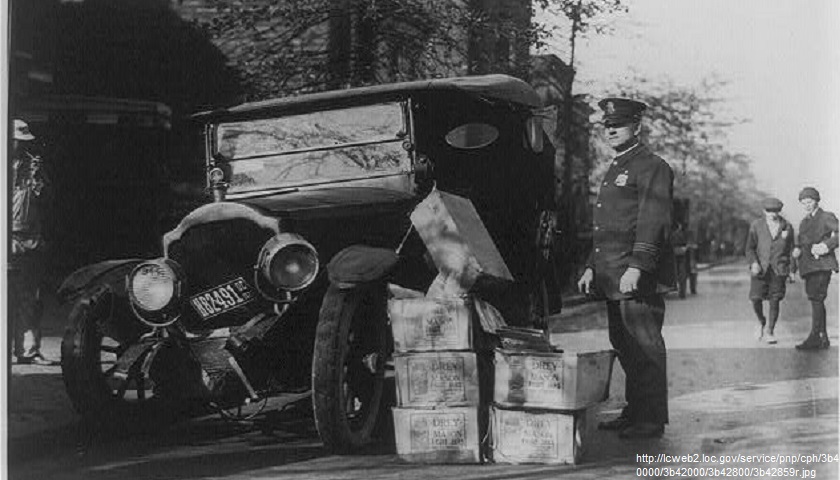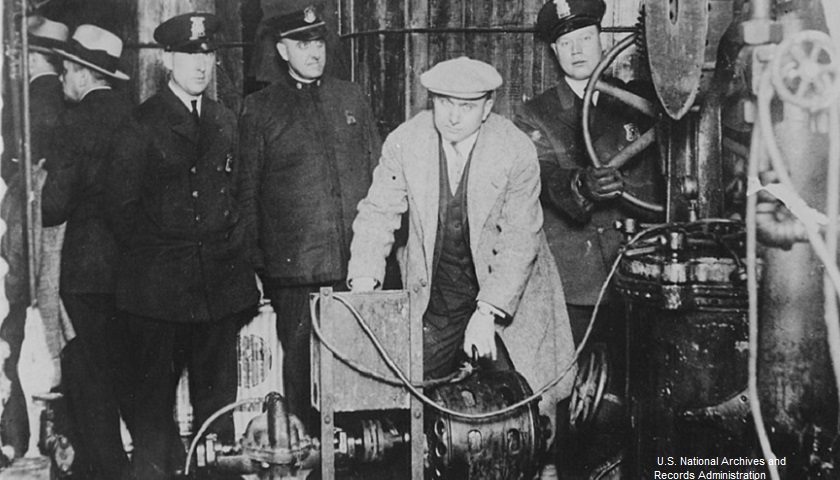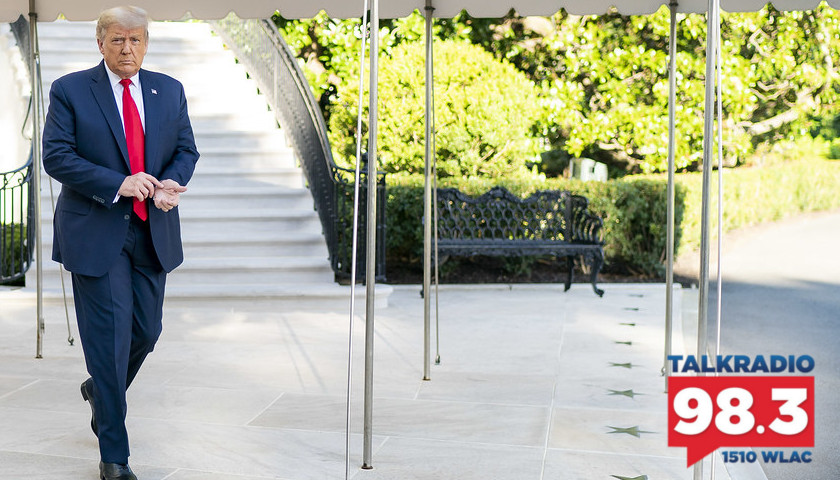This is the tenth of twenty-five weekly articles in The Tennessee Star’s Constitution Series. Students in grades 8 through 12 can sign up here to participate in The Tennessee Star’s Constitution Bee, which will be held on September 23.
The Bill of Rights–the first ten amendments to the Constitution–were included in the original “covenant” that created the United States because many Americans feared that unless their individual rights were specifically articulated in our country’s founding documents they would be eventually be violated by those in power.
The Fourth Amendment, in particular, offers protections to individuals against the police powers of the state:
The right of the people to be secure in their persons, houses, papers, and effects, against unreasonable searches and seizures, shall not be violated, and no warrants shall issue, but upon probable cause, supported by oath or affirmation, and particularly describing the place to be searched, and the persons or things to be seized.
Anyone who has watched one of the many police procedural dramas on television, like Law & Order, are very familiar with the two key elements of the amendment:
(1) “The right of the people to be secure in their persons, houses, papers, and effects, against unreasonable searches and seizures, shall not be violated.”
(2) “No warrants shall issue, but upon probable cause, supported by oath or affirmation, and particularly describing the place to be searched, and the persons or things to be seized.”
“The search-and-seizure provisions of the Fourth Amendment are all about privacy. To honor this freedom, the Fourth Amendment protects against “unreasonable” searches and seizures by state or federal law enforcement authorities,” according to Nolo.com:
The flip side is that the Fourth Amendment does permit searches and seizures that are reasonable. In practice, this means that the police may override your privacy concerns and conduct a search of you, your home, barn, car, boat, office, personal or business documents, bank account records, trash barrel, or whatever, if:
- The police have probable cause to believe they can find evidence that you committed a crime, and a judge issues a warrant, or
- The particular circumstances justify the search without a warrant first being issued.

Until the Prohibition Era (1919-1933), civil asset forfeiture was rarely used. After the 18th Amendment prohibiting the sale of alcohol was passed in 1919, bootlegging–the illegal smuggling of alcohol into or within the United States exploded. When bootleggers who were transporting alcohol illegally were arrested with the goods in their possession, local and national law enforcement agencies seized the contraband alcohol. (click to enlarge)
Over the past three decades, as part of “the war on drugs,” agents of the government–at the federal, state, and local level–have revived a practice known as civil asset forfeiture, “a controversial legal process in which law enforcement officers take assets from persons suspected of involvement with crime or illegal activity without necessarily charging the owners with wrongdoing.” Many originalists believe this is a violation of the Fourth Amendment’s prohibition “against unreasonable searches and seizures.”
“Forfeiture, the government seizure of property connected to illegal activity, has been a major weapon in the Federal government’s ‘war on drugs’ since the mid-eighties,” the Legal Information Institute notes:
In the words of former President George Bush, “Asset forfeiture laws allow the government to take the ill-gotten gains of drug kingpins and use them to put more cops on the streets.” New York City Police Commissioner Howard Safir invoked deterence when he said, “We believe that … the threat of civil forfeiture and the possibility of losing one’s car, have served to reduce the number of motorists who are willing to take the chance of being caught driving drunk.” . . .
Most forfeiture activity occurs under Federal law, and most of that is connected to the traffic in illegal drugs. The Department of Justice established the National Assets Seizure and Forfeiture Fund in 1985 and realized $27 million from drug-related forfeitures that year. By 1992 the total take had climbed to $875 million. Many states followed suit by establishing their own civil forfeiture programs. Cities and other municipal governments have cooperated in forfeiture actions under both Federal and state drug laws. They have used such laws on their own to deal with local concerns ranging from unsafe housing to prostitution, and now for the problem of drunk driving.
The problem with civil asset forfeiture is that most citizens from whom property is seized by law enforcement have a very different idea than local law enforcement of what “unreasonable search and seizure” means. To them, and to most constitutional originalists it is unreasonable to seize property from anyone who has not been convicted of a crime.
“The authority to seize property in this way is not inherent. Rather, it is established by statute. It is constrained by those authorizing laws and by the U.S. Constitution,” the Legal Information Institute observes.
The seizure of private property without clear legal authority, critics argue, is simply the crime of theft committed by government authority, not a lawful taking.
“The expansion of forfeiture activity has not gone on without Constitutional challenge. The U.S. Supreme Court has heard at least half a dozen forfeiture cases during the nineties, but its rulings have not done much to rein in the practice,” the Legal Information Institute notes.
Until the Prohibition Era (1919-1933), civil asset forfeiture was rarely used. After the 18th Amendment prohibiting the sale of alcohol was passed in 1919, bootlegging–the illegal smuggling of alcohol into or within the United States exploded. When bootleggers who were transporting alcohol illegally were arrested with the goods in their possession, local and national law enforcement agencies seized the contraband alcohol
When Prohibition ended, the practice of civil asset forfeiture by law enforcement agencies lost favor with law enforcement agencies.

For the next half a century, civil asset forfeiture was an enforcement action rarely used by law enforcement agencies. Everything changed, however, during the 1980s, when the illegal drug trade from South America and other foreign countries spiked, and the federal government declared the “War on Drugs.”
Journalist Sarah Stillman argues that the passage of the Comprehensive Crime Control Act of 1984 led to the explosive growth in the use of civil asset forfeiture by law enforcement agencies.
The law allowed law enforcement agencies to take for their own budgets the assets and cash they seized, as well as “extract swift penalties from white-collar criminals and offer restitution to victims of fraud.”

“Despite the plain wording of the fourth amendment, the vast majority of courts view seizures of property pursuant to forfeiture laws as outside the purview of the warrant requirement, which mandates judicial authorization prior to government action,” Ahok Aluja wrote more than 30 years ago in 1986 at the Yale Law and Policy Review when the practice of civil asset forfeiture was just beginning to take hold in law enforcement agencies at every level of government around the country:
Moreover, civil forfeiture is on the rise as a preferred law enforcement tool. The Department of Justice encourages government attorneys “to use aggressively the forfeiture weapon in our continuing battle against crime.” Forfeiture provisions are now incorporated into over 120 federal statutes. Furthermore, Congress recently extended the reach of the forfeiture statutes to include “[a]ll real property . . .intended to be used, in any manner … to facilitate the commission of . . . a violation” of the narcotics laws.

Examples of the abuses of civil asset forfeiture by law enforcement agencies abound.
The Daily Caller, for instances, offers these seven recent examples of civil asset forfeiture abuse:
1. Tan Nguyen hopped in his car excited about $50,000 in casino winnings. That excitement faded when he saw police lights in the rear view mirror. A Nevada police officer suspicious of the man’s large sum of cash confiscated it, Forbes reports. Nguyen said the cop threatened to seize and tow his car if he spoke up about it.
After hiring a lawyer, Nguyen was able to get his $50,000 back with attorney’s fees.
2. Matt Lee had his $2,400 cash confiscated from his car on a routine traffic stop. The worst part? It was taken by the same officer that targeted Nguyen: Deputy Lee Dove. In a shared settlement with Nguyen, Lee got his $2,400 back.
3. The Contemporary Art Institute of Detroit’s monthly “Funk Night” party got weird in May of 2008. The all-night dance party was raging when police burst in around 2 a.m., the Metro Times reports. Officers alleged the establishment did not have a license. They passed out loitering tickets and impounded 40 vehicles just because they were driven to the party. They all got their cars back. Oh, except for the one guy who had his car stolen from the impound lot. Also, they each paid a $900 impound fee, totaling more than $35,000.
4. Mississippi police pulled over a man for a routine traffic stop in July of 2013. An officer’s search of the vehicle found $360,000 in a secret compartment of the car. The police confiscated the money, though they had no proof the man committed a crime, ABC News reports. The report said cops “are not ruling out criminal activity.” Considering they confiscated his personal property, that seems right.

5. A New Jersey man’s stash of cash was taken by an officer when he traveled through Monterey, Tenn. George Reby had $22,000 cash in his car when he was stopped by a police officer, News Channel 5 reports. The officer took the money because he suspected it was drug money. However, the man said he was going to use the money to buy a car, for which he had active bids on Ebay, something he was able to prove on his computer. When the officer wrote up the report, he failed to mention Reby’s claim that he was going to buy a car.
“If somebody told me this happened to them, I absolutely would not believe this could happen in America,” Reby told News Channel 5.
6. Even though they didn’t charge her with a crime, Georgia police took $11,530 from Alda Gentile at a regular traffic stop, The Associated Press reports. They searched the car for drugs but found none. Gentile said she had the money for a house hunting trip to Florida.
7. A family in the Philadelphia suburbs that had their home seized by police because their son sold drugs out of the house, CNN reports. The son was charged for selling $40 of heroin, but the parents say they didn’t know about it.
“Civil forfeiture laws pose some of the greatest threats to property rights in the nation today, too often making it easy and lucrative for law enforcement to take and keep property—regardless of the owner’s guilt or innocence,” the Insitute for Justice notes.
“Every year, police and prosecutors across the United States take hundreds of millions of dollars in cash, cars, homes and other property—regardless of the owners’ guilt or innocence. Under civil forfeiture laws, the government can seize this property on the mere suspicion that it is connected to criminal activity. No charges or convictions are required. And once property is seized, owners must navigate a confusing, complex and often expensive legal process to try to win it back. Worst of all, most civil forfeiture laws give law enforcement agencies a powerful incentive to take property: a cut, or even all, of forfeiture proceeds,” according to the Executive Summary of Policing for Profit:
Forfeiture activity has exploded, particularly in the new millennium.
Forfeited cash and proceeds from the sale of forfeited property generate revenue for the government—and provide an important measure of law enforcement’s forfeiture activity.
In 1986, the Department of Justice’s Assets Forfeiture Fund took in $93.7 million in revenue from federal forfeitures. By 2014, annual deposits had reached $4.5 billion—a 4,667 percent increase.
The forfeiture funds of the DOJ and Treasury Department together took in nearly $29 billion from 2001 to 2014, and combined annual revenue grew 1,000 percent over the period.
Total annual forfeiture revenue across 14 states more than doubled from 2002 to 2013. Those 14 states were the only states for which the Institute for Justice could obtain forfeiture revenues for an extended period.
“Nearly all expenditures of forfeiture proceeds are hidden from public view,” Policing for Profits notes:
Forfeiture laws typically place few limits on law enforcement spending of forfeiture proceeds and impose even fewer checks to ensure that expenditures are proper or legal. Scant reporting requirements heighten the risk of abuse by shielding expenditures from public scrutiny.
Surprisingly, the Supreme Court has largely ruled in favor of the practice of civil asset forfeiture since the passage of the Comprehensive Crime Control Act of 1984. Several current lawsuits challenging civil asset forfeiture, however, may reach the Supreme Court in the next year or so, and the outcome of those decisions may be different than those made over the past 30 years.
One recent lawsuit in particular suggests that judicial attitudes towards the constitutionality of civil asset forfeiture may be changing.
In June of 2017, “a federal appellate court ordered police to return $167,000 that was seized more than four years ago following two coordinated traffic stops along I-80 in Nevada,” Matt Powers writes:
The opinion from the Ninth Circuit Court of Appeals casts a light on tactics that police use to seize money along the nation’s highways. And, at least in some circumstances, the opinion finds those tactics unconstitutional.
“Civil forfeiture laws pose one of the greatest threats to property rights in the nation today. They encourage law enforcement to favor the pursuit of property over the pursuit of justice, and they typically give the innocent little recourse for recovering seized property. And without meaningful transparency, law enforcement faces little public accountability for its forfeiture activity or expenditures from forfeiture funds,” the Institute for Justice notes.
“The best solution would be to simply abolish civil forfeiture. Short of that, lawmakers should eliminate financial incentives to take property, bolster property rights and due process protections, and demand transparency for forfeiture activity and spending. No one should lose property without being convicted of a crime, and law enforcement agencies should not profit from taking people’s property,” the Institute for Justice concludes.







One of the potent incentives former Governments had to get people to “conform to their wishes” was the taking of their property.
This fact was known and debated in the writing and the reason the Fourth was included in the Constitution.
What ever happen to being proved guilty before punishment, the way the law is being used it’s “punishment before being proved guilty”.
As History and the framers of the Constitution noted, it’s the first step down the road to Tyranny.